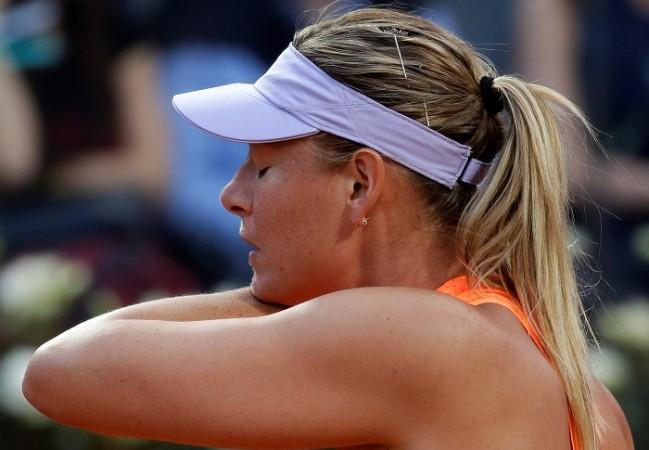
Maria Sharapova might have the glitz and glam of a movie star, with the way she handles and conducts herself on and off the court giving off that "she is bigger than big isn't she" vibe. Those movie star looks have, of course, made her one of the highest earners in the history of the game, but it has also come at a price.
While there is no questioning her tennis ability, Sharapova isn't the most popular of players in the locker room. Barring a handful – and most of them are her Russian Fed Cup teammates – Sharapova isn't exactly liked by her peers, which is why there was so much dissent over her immediate return to top-class tennis action following a 15-month ban for taking the WADA banned substance Meldonium.
It also didn't help that Sharapova took the "I did not know it was banned" excuse, while showing absolutely – not even an iota – of contrition after testing positive early last year.
From Eugenie Bouchard, who called her a "cheater," to Andy Murray, several tennis stars have weighed in on her immediate return to the tennis courts, with the consensus being "she has to earn her place back on the circuit, rather than being handed it on a golden platter."
So, the big question for this month was if Sharapova would be given a wildcard for the second Grand Slam of the year and the first one that pops up since her return – the French Open.
Most of the voices coming out of the Roland Garros halls seemed to suggest, like it or not, the wildcard was going to come.
However, on Tuesday, the president of the French Tennis Federation Bernard Giudicelli denied her a chance of playing on the red clay in Paris.
"You can get a wild card when you return from injury but you cannot get a wild card when returning from a doping suspension," Giudicelli said.
"I appreciate the media impact of Maria, I appreciate the broadcasters' expectations but in conscience, it was not possible to go beyond the anti-doping code and beyond the application of the rules...
"I'm very sorry for Maria, very sorry for her fans. They might be disappointed, she might be very disappointed, but it's my responsibility, my mission, to protect the high standards of the game."
Now, that was a big surprise.
Because it is not often that a tournament, and one as big as Roland Garros, decides against bringing in a popular face like Sharapova. The French Open needed a big name too, with Serena Williams missing the entire 2017 and Roger Federer withdrawing in order to concentrate on the grass and hard court seasons later in the year.
However, Giudicelli has taken the strong – right or wrong depends on which corner you are in – decision to leave Sharapova out of the French Open.
In a way, it shows that the Sharapova star, burning brightest in women's tennis for such a long time, might be losing its sparkle.

Maybe it will spring back to life again at Wimbledon, the venue where the Russian won her first of five Grand Slam titles.
There is going to be more of the posturing and hand wringing over the next few weeks, with the Wimbledon organisers now under pressure to give their judgement on the wildcard.
Sharapova made it to the qualifiers of the All England Championships by entering the top 200 in the rankings, but any hope of qualifying for the main draw ended when she limped off the Camp Centrale while a break up in the third set against Mirjana Lucic-Baroni in the second round of the Italian Open.
A semifinal appearance was the least required in order to make it to the Wimbledon main draw.
Now it is up to the organisers at the All England Club committee, which is led by the former Wimbledon favourite Tim Henman, to decide if Sharapova deserves a wildcard to the main draw, or if she is to fight her way through the qualifiers.
Just how bright that star burns at the moment will be known when Wimbledon makes that decision, but for now, all Sharapova can do is sit back on her sofa and watch the action at Roland Garros on television, like she was forced to do last year, when serving her ban.
Maria Sharapova visits the Colosseum in Rome

















